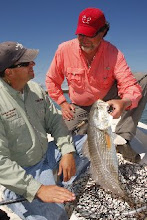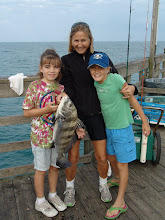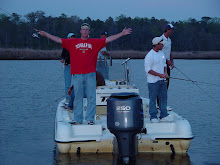Saturday, November 27, 2010
Wednesday, November 24, 2010
NC Marine Fisheries Commission Calls Special Meeting to Undo Previous Action to Protect Speckled Trout
The NC Marine Fisheries Commission met in Morehead City Monday, November 22 and undid one of the most positive actions they had taken to date to address overfishing on Spotted Sea Trout. With total disregard for the public input they received at their November 4 meeting calling upon MFC to abide by the current Fisheries Management Plan law that requires implementation of management measures sufficient to end overfishing within 2 years, the Commission caved in to commercial interests to allow continued netting throughout the winter months.
The MFC had closed the commercial harvest of SST at their November 4 meeting from December 15 through February 28 to reduce fishing mortality from commercial fishing by 28%, which would have provided one half the reduction needed to eliminate overfishing within 2 years. After a clamorous uproar of protest from commercial interests, MFC amended the proposal to close commercial fishing for SST only on the weekends year around. However, the weekend closure does not require commercial fishermen to remove their gear from the water. So the gear remains in the water over the weekend year around to catch speckled sea trout that cannot be sold legally.
Recreational fishermen saw their limits reduced from 10 fish per day to 6 without a murmur of objection. Recreational fishermen have accepted the premise that we have to protect our brood stock to restore the fishery to levels that are sustainable and can support higher limits. This is a basic principle of resource management wasted upon the MFC. Professional fishery managers of the DMF presented strong data to justify the seasonal closure. Commercial interests on the MFC were very critical of the science displaying a lack of knowledge about fishery biology and insensitivity toward the welfare of the resource. The MFC replaced the considered recommendations of fishery managers with their own opinions based only in the argument that commercial fishermen need to catch SST during the winter to supplement their income at this time of year. Too bad about the trout!
Now the MFC is preparing to undermine the newly enacted state law designed to improve fishery management plans by exempting the speckled sea trout from the new law so that fishing restrictions will not be fully required until the next cycle of plan reviews, which is years away. Let us prepare for this fight in the new General Assembly. Enactment of management measures sufficient to end overfishing within 2 years is a necessary and reasonable proposition. We can make a difference if we all stick together to end this crazy propensity of the MFC to continue overfishing for the benefit of commercial interests.
How long can we let our marine fishery resource be sacrificed on the altar of expediency and exploitation for the personal gain of so few? We must accept the restrictions imposed today to ensure the healthy future for the speckled sea trout. Prospects for success are greater today than they were yesterday. Lets seize this opportunity and move forward for change.
The MFC had closed the commercial harvest of SST at their November 4 meeting from December 15 through February 28 to reduce fishing mortality from commercial fishing by 28%, which would have provided one half the reduction needed to eliminate overfishing within 2 years. After a clamorous uproar of protest from commercial interests, MFC amended the proposal to close commercial fishing for SST only on the weekends year around. However, the weekend closure does not require commercial fishermen to remove their gear from the water. So the gear remains in the water over the weekend year around to catch speckled sea trout that cannot be sold legally.
Recreational fishermen saw their limits reduced from 10 fish per day to 6 without a murmur of objection. Recreational fishermen have accepted the premise that we have to protect our brood stock to restore the fishery to levels that are sustainable and can support higher limits. This is a basic principle of resource management wasted upon the MFC. Professional fishery managers of the DMF presented strong data to justify the seasonal closure. Commercial interests on the MFC were very critical of the science displaying a lack of knowledge about fishery biology and insensitivity toward the welfare of the resource. The MFC replaced the considered recommendations of fishery managers with their own opinions based only in the argument that commercial fishermen need to catch SST during the winter to supplement their income at this time of year. Too bad about the trout!
Now the MFC is preparing to undermine the newly enacted state law designed to improve fishery management plans by exempting the speckled sea trout from the new law so that fishing restrictions will not be fully required until the next cycle of plan reviews, which is years away. Let us prepare for this fight in the new General Assembly. Enactment of management measures sufficient to end overfishing within 2 years is a necessary and reasonable proposition. We can make a difference if we all stick together to end this crazy propensity of the MFC to continue overfishing for the benefit of commercial interests.
How long can we let our marine fishery resource be sacrificed on the altar of expediency and exploitation for the personal gain of so few? We must accept the restrictions imposed today to ensure the healthy future for the speckled sea trout. Prospects for success are greater today than they were yesterday. Lets seize this opportunity and move forward for change.
Thursday, November 18, 2010
Bombing Ranges in Pamlico Sound: CFRG, Other Groups Request Complete Environmental Impact Statement
For years NC saltwater fishermen have shared the Pamlico Sound with our military. Now the military is making an effort to expand the bombing ranges while removing fishermen from areas that have been fished for years. Before we let this happen, we should at least understand the impact these bombing exercises are having on our wildlife populations, soils, and waters in these areas, in addition to the impacts on the fishermen themselves.
Please see the letter below from Todd Miller, Executive Director of the North Carolina Coastal Federation. This is important to all saltwater fishermen here in NC. Please take time and send an email requesting a full "Environmental Impact Statement" on these bombing sites before November 26 to: richard.k.spencer@usace.army.mil
Army Corps of Engineers
Attention: Richard Spencer
69 Darlington Ave.
Wilmington, NC 28403
Re: Closure of Traditional Use Areas and proposed intermittent expansion of BT-11 and BT-9
The North Carolina Coastal Federation has reviewed the proposals to expand activities in BT-11 and BT-9, and comments about these plans submitted to you by the NC Marine Fisheries Commission and the Alliance for Public Trust Waters, Inc. We have also examined the formal policies of the NC Coastal Resources Commission that are part of North Carolina’s federally approved Coastal Management Plan that relate to military activities in the coastal zone as well as the protection of public trust rights in coastal waters. Any activities undertaken by federal agencies should be consistent with the state’s federally approved plan.
Dating back to the mid 1980s, there have been issues raised by the State of North Carolina regarding its need to protect public trust rights around these ranges. In addition, state policy requires on going monitoring and reporting of potential environmental hazards associated with range activities. It appears that the public trust issues raised by the State over two decades ago have still not been resolved, and that routine reports to the Coastal Resources Commission of the results of monitoring activities have been episodic at best.
For these reasons, we agree with the comments submitted by both the Division of Marine Fisheries and the Alliance. There has been inadequate evaluation of the impacts of these proposed expansions to public trust rights, coastal habitat, and coastal water quality. We also request additional environmental review of these proposals. An Environmental Impact Statement should be prepared in accordance with requirements of NEPA. This will allow for full analysis of the impacts of these proposals in a way that fully includes the public.
Thank you for considering our comments.
Todd Miller, Executive Director
North Carolina Coastal Federation
3609 Highway 24 (Ocean)
Newport, North Carolina 28570
Please see the letter below from Todd Miller, Executive Director of the North Carolina Coastal Federation. This is important to all saltwater fishermen here in NC. Please take time and send an email requesting a full "Environmental Impact Statement" on these bombing sites before November 26 to: richard.k.spencer@usace.army.mil
Army Corps of Engineers
Attention: Richard Spencer
69 Darlington Ave.
Wilmington, NC 28403
Re: Closure of Traditional Use Areas and proposed intermittent expansion of BT-11 and BT-9
The North Carolina Coastal Federation has reviewed the proposals to expand activities in BT-11 and BT-9, and comments about these plans submitted to you by the NC Marine Fisheries Commission and the Alliance for Public Trust Waters, Inc. We have also examined the formal policies of the NC Coastal Resources Commission that are part of North Carolina’s federally approved Coastal Management Plan that relate to military activities in the coastal zone as well as the protection of public trust rights in coastal waters. Any activities undertaken by federal agencies should be consistent with the state’s federally approved plan.
Dating back to the mid 1980s, there have been issues raised by the State of North Carolina regarding its need to protect public trust rights around these ranges. In addition, state policy requires on going monitoring and reporting of potential environmental hazards associated with range activities. It appears that the public trust issues raised by the State over two decades ago have still not been resolved, and that routine reports to the Coastal Resources Commission of the results of monitoring activities have been episodic at best.
For these reasons, we agree with the comments submitted by both the Division of Marine Fisheries and the Alliance. There has been inadequate evaluation of the impacts of these proposed expansions to public trust rights, coastal habitat, and coastal water quality. We also request additional environmental review of these proposals. An Environmental Impact Statement should be prepared in accordance with requirements of NEPA. This will allow for full analysis of the impacts of these proposals in a way that fully includes the public.
Thank you for considering our comments.
Todd Miller, Executive Director
North Carolina Coastal Federation
3609 Highway 24 (Ocean)
Newport, North Carolina 28570
Subscribe to:
Comments (Atom)






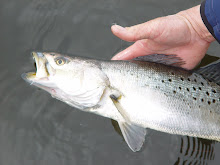



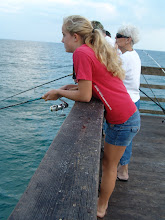

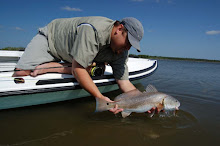.jpg)


